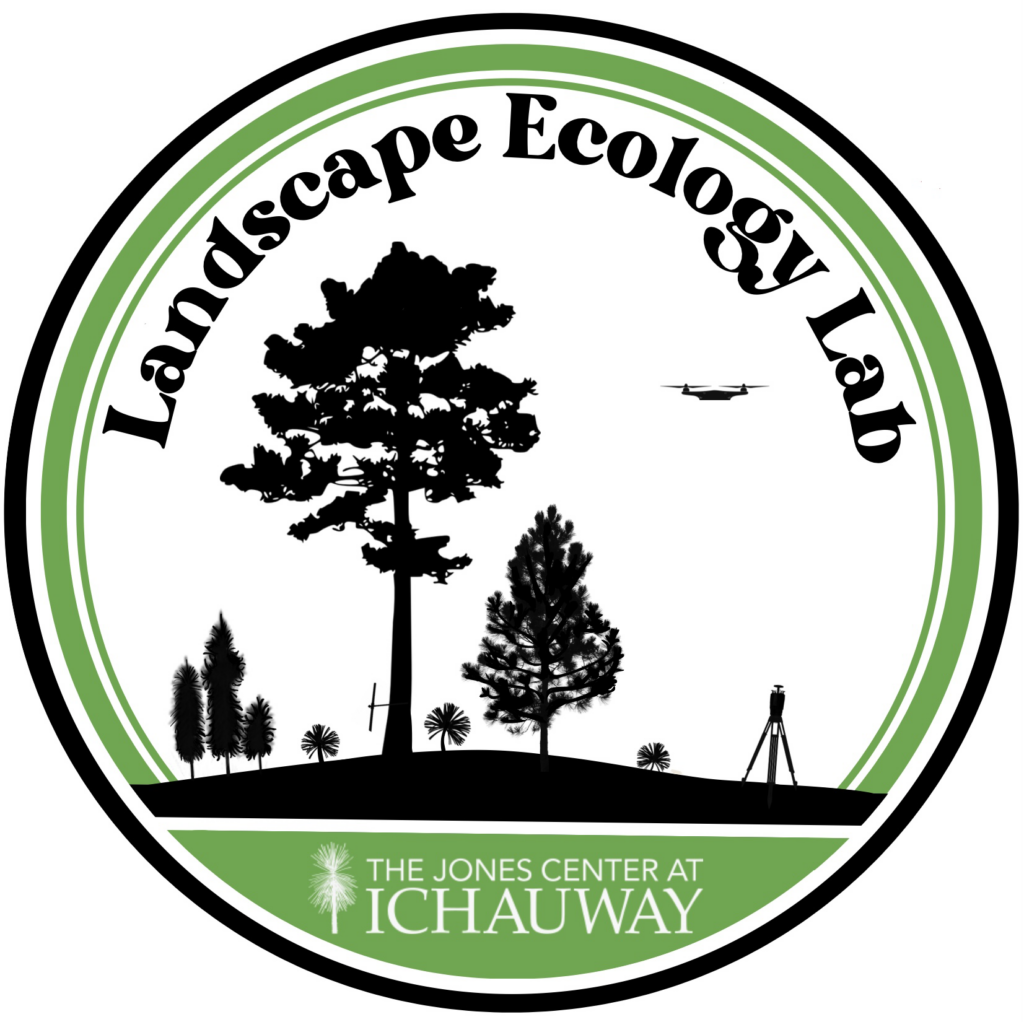Jones Center Landscape Ecology Lab
The mission of the Jones Center Landscape Ecology Lab is to advance the science and practice of landscape ecology to inform the conservation and management of ecosystems in the Southeastern US and beyond. We achieve this by (1) conducting innovative, interdisciplinary research addressing pressing conservation challenges, (2) designing practical, evidence-based solutions that integrate ecology, community, and policy, and (3) fostering the development of skilled experts and leaders who drive positive change in conservation. We focus our efforts on three major goals:
- Understand how hurricanes and fire shape forest structure and function
- Improve conservation and management outcomes in longleaf pine forests.
- Accelerate training and adoption of new technologies for addressing conservation issues
Read more about our research efforts, and see below for recent news from the Lab
News from the Landscape Ecology Lab

A Practical Guide to Revising a Peer-Reviewed Manuscript
Getting reviewer comments back can feel overwhelming—especially the first time. This article walks budding scientists through a clear, practical process for tackling peer-review revisions. From managing reviewer feedback to writing an effective response letter, this guide focuses on organization, momentum, and making it easy for reviewers to say yes.
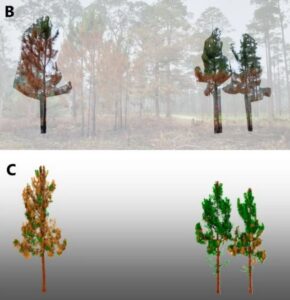
Measuring Fire Injury with Lidar: New Research and podcast interview on Fire Ecology Chats
We joined a recent episode of Fire Ecology Chats, to discuss our lab’s new research using terrestrial lidar to measure fire-caused crown scorch in longleaf pine. By linking lidar return intensity to scorch severity, this approach offers a faster, more objective alternative to traditional ocular estimates—scaling fire effects measurements from individual trees to entire stands. The conversation explores implications for fire ecology, forest monitoring, and operational fire effects research.
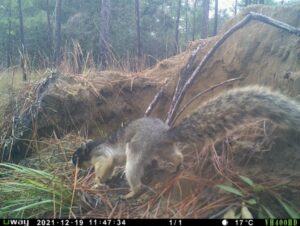
New Study: 48 Wildlife species use uprooted longleaf pine root mounds
We partnered with the Herpetology lab in a new study which showed that uprooted longleaf pine tip-ups—created when trees fall—provide a brief but critical wildlife habitat. Using >1 million camera-trap photos, we documented 48 vertebrate species using the mounds to forage, perch, bask, or shelter. The study highlights how even short-lived storm features support biodiversity and should factor into post-disturbance management decisions.

New Study: Terrestrial lidar provides accurate and objective measures of crown scorch
A new study from our lab shows that terrestrial LiDAR scanning (TLS) can measure crown scorch in longleaf pine with unprecedented speed and objectivity. TLS provides high-resolution, quantitative estimates of fire-caused crown damage—at least 20× faster than traditional ocular methods. The CrownScorchTLS R package makes these tools accessible for researchers and land managers, enabling more precise, mechanistic studies of fire impacts on forests.
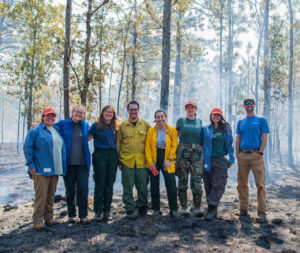
Now Recruiting: MS Assistantship in Hurricane Ecology at UCF and the Jones Center
A new MS assistantship is available to study how hurricanes shape southern ecosystems through long-term data and new fieldwork. The position, jointly mentored by Dr. Nicole Zampieri (UCF) and Dr. Jeffery Cannon (Jones Center), begins Fall 2026 and includes full funding. The student will explore how storms and management practices drive forest recovery and plant communities across the southeastern U.S
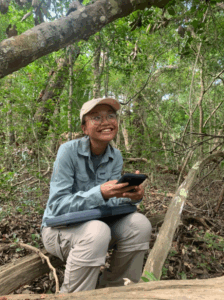
Landscape Ecology Lab welcomes Khanh Ton
The Landscape Ecology lab is excited to welcome Khanh Ton as our new Geospatial Analyst! Khanh recently earned her MS from the University of New Hampshire, where she studied how prescribed fire supports red oak regeneration. At the Jones Center, she will lead projects using drones, lidar, and satellite imagery to assess longleaf pine habitat quality. Her geospatial expertise will strengthen our lab’s efforts to apply cutting-edge technology in conservation.
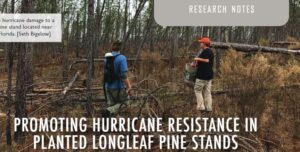
Building hurricane-resilient longleaf pine forests
The Longleaf Leader recently featured our research published in Forest Ecology and Management, which guides how landowners can help longleaf pine forests withstand hurricanes. By managing stand density, encouraging tree taper, and maintaining landscape connectivity, planted longleaf stands can be made more wind-resistant, highlighting practical steps to ensure restoration efforts endure in a hurricane-prone future. Check it out on the Longleaf Alliance website
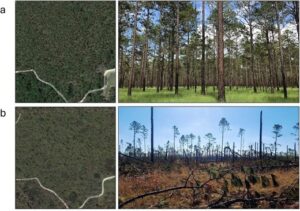
Scienmag highlights labs work on hurricane threats to Longleaf Pine ecosystems
A new study led by lab post-doc Nicole Zampieri was recently featured on Scienmag. The article highlights our work on quantifying the escalating hurricane risks threatening North America’s iconic longleaf pine ecosystems. This research reveals how intensified hurricane activity and compounded stressors imperil biodiversity-rich coastal savannas. Our work underscores the urgent need for adaptive management strategies to safeguard these vital ecosystems under climate change.
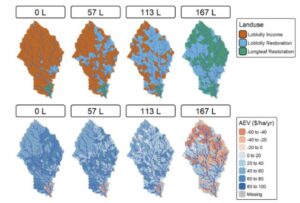
New paper: Optimizing forest restoration to boost streamflow in Georgia watersheds
Can restoring pine savannas improve water flow? Our lab’s new study, led by Chambers English and Seth Younger, shows how forest restoration can be strategically optimized to meet streamflow goals in Southwest Georgia. Using vegetation and hydrologic modeling, the team identifies the most cost-effective areas for pine savanna restoration to support ecological and economic goals.
